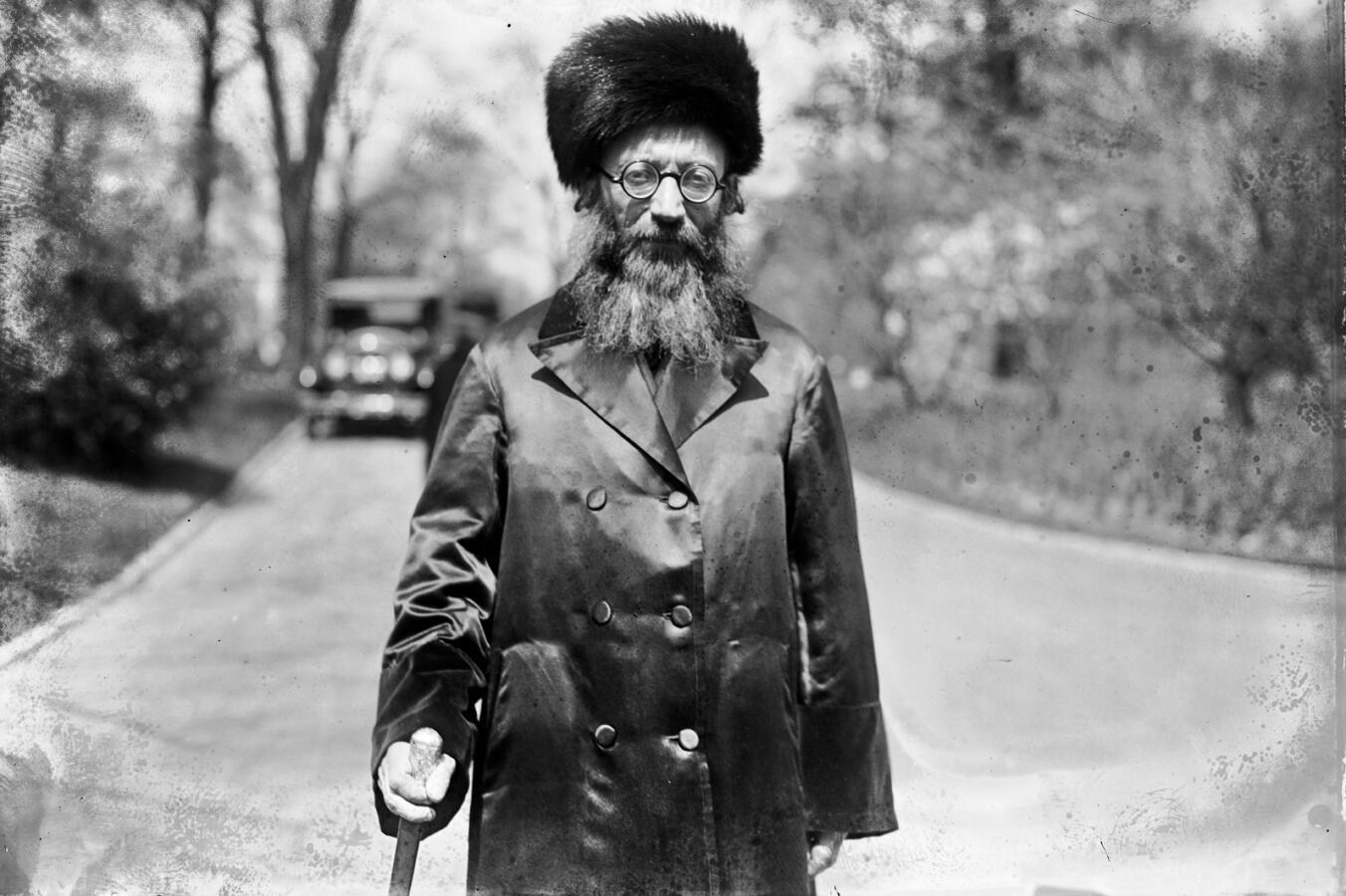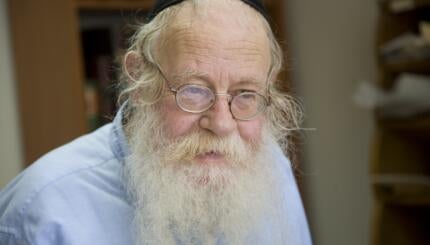The strongest support for vegetarianism as a positive ideal anywhere in Torah literature is in the writings of Rabbi Abraham Isaac Hakohen Kook (1865-1935). Rav Kook was the first Chief Rabbi of pre-state Israel and a highly respected and beloved Jewish spiritual leader in the early 20th century. He was a mystical thinker, a prolific writer, and a great Torah scholar.
Rav Kook helped inspire many people to move toward spiritual paths. He urged religious people to become involved in social questions and efforts to improve the world. His powerful words on vegetarianism are found primarily in A Vision of Vegetarianism and Peace (edited by Rabbi David Cohen).
Rav Kook believed that the [biblical] permission to eat meat was only a temporary concession; he felt that a God who is merciful to his creatures would not institute an everlasting law permitting the killing of animals for food. He stated:
It is inconceivable that the Creator who had planned a world of harmony and a perfect way for man to live should, many thousands of years later, find that this plan was wrong.” (A Vision, section 1)
With your help, My Jewish Learning can provide endless opportunities for learning, connection and discovery.
According to Rav Kook, because people had sunk to an extremely low level of spirituality (in the time of Noah), it was necessary that they be given an elevated image of themselves as compared to animals, and that they concentrate their efforts into first improving relationships between people. He felt that were people denied permission to eat meat, they might eat the flesh of human beings due to their inability to control their lust for flesh. He regarded the permission to slaughter animals for food as a “transitional tax” or temporary dispensation until a “brighter era” is reached when people would return to vegetarian diets. Perhaps to reinforce the idea that the ideal vegetarian time had not yet arrived, Rav Kook ate a symbolic small amount of chicken on the Sabbath day.
Rabbi Kook believed that the permission to eat meat “after all the desire of your soul” was a concealed reproach and an implied reprimand. He stated that a day will come when people will detest the eating of the flesh of animals because of a moral loathing, and then it shall be said that “because your soul does not long to eat meat, you will not eat meat.” Along with permission to eat meat, Judaism provides many laws and restrictions (the laws of kashrut). Rabbi Kook believed that the reprimand implied by these regulations is an elaborate apparatus designed to keep alive a sense of reverence for life, with the aim of eventually leading people away from their meat-eating habit (Rav Kook, “Fragments of Light”).
According to Rav Kook, all the laws and restrictions serve to raise the consciousness of Jews, to get them to think about what they are eating, and to decide if the fare meets religious requirements. The eating of meat is thus not taken for granted, and this mandated consideration of what is on the plate can be a first step toward rejecting meat consumption.
This idea is echoed by [the 16th-17th century Polish] Torah commentator Solomon Efraim Lunschitz, author of K’li Yakar [a commentary to the Torah]:
“What was the necessity for the entire procedure of ritual slaughter? For the sake of self-discipline. It is far more appropriate for man not to eat meat; only if he has a strong desire for meat does the Torah permit it, and even this only after the trouble and inconvenience necessary to satisfy his desire. Perhaps because of the bother and annoyance of the whole procedure, he will be restrained from such a strong and uncontrollable desire for meat.”
Rav Kook saw people’s craving for meat as a manifestation of negative passions rather than an inherent need. He and Joseph Albo [a Jewish philosopher in Spain, c.1380-1444] believed that in the days of the Messiah people will again be vegetarians. Rav Kook stated that in the Messianic Epoch, “the effect of knowledge will spread even to animals…and sacrifices in the Temple will consist of vegetation, and it will be pleasing to God as in days of old…” (from Rav Kook’s prayerbook commentary, Olat Hara’yah). They based this on the prophecy of Isaiah:
“And the wolf shall dwell with the lamb. and the leopard shall lie down with the kid, and the calf and the young lion and the fatling together, and a little child shall lead them. And the cow and the bear shall feed; their young ones shall lie down together. And the lion shall eat straw like the ox…. They shall not hurt nor destroy in all My holy mountain.” (Isaiah 11:6-9)
Rabbi Kook believed that the high moral level involved in the vegetarianism of the generations before Noah is a virtue of such great value that it cannot be lost forever. In the future ideal state, just as at the initial period, people and animals will not eat flesh. No one shall hurt or destroy another living creature. People’s lives will no longer be supported at the expense of the lives of animals. In his booklet “Chalutzim of the Messiah–The Religious Vegetarian Concept as Expounded by Rabbi Kook,” Joe Green, a recent Jewish vegetarian writer, concluded that, in adopting the diet that will be used during the time of the Messiah, Jewish religious ethical vegetarians are pioneers of the Messianic era; they are leading lives that make the coming of the Messiah more likely.
Today most Jews eat meat, but the high ideal of God, the initial vegetarian dietary law, still stands supreme in the Bible for Jews and the whole world to see, an ultimate goal toward which all people should strive.
This article is reprinted with permission, and with slight changes by the author, from the Jewish Vegetarian website.
Torah
Pronunced: TORE-uh, Origin: Hebrew, the Five Books of Moses.



